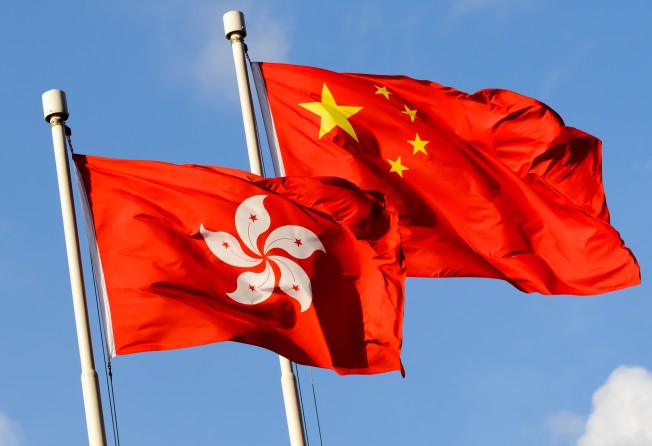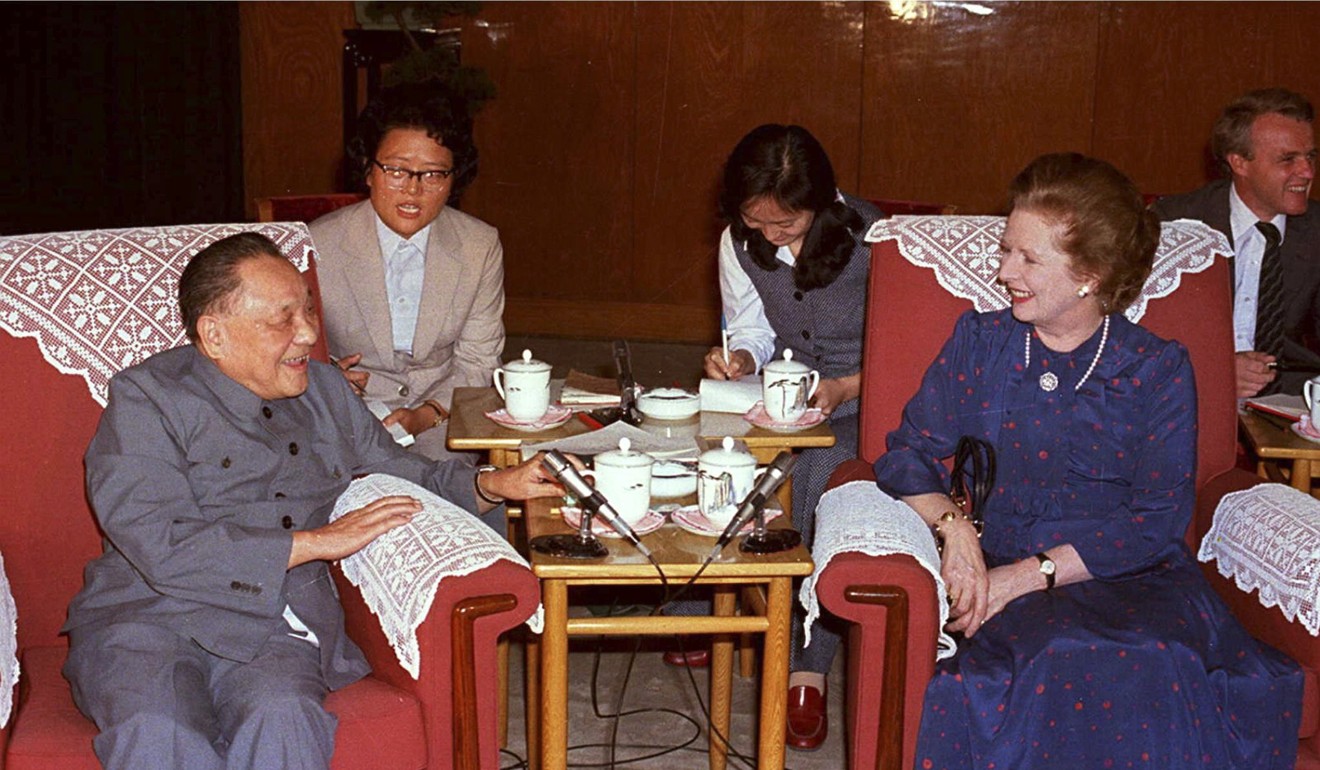Britain urges China to ensure Hong Kong’s freedoms on joint declaration anniversary amidst protest turmoil
- Foreign Secretary Dominic Raab affirms British view that handover treaty remains in force
- Date is largely overlooked in China which is coincidentally celebrating 20 years since return of Hong Kong’s neighbouring city of Macau

Britain’s foreign secretary has urged Beijing to ensure Hong Kong’s freedom of expression and independent judiciary on the 35th anniversary of the Sino-British Joint Declaration.
Dominic Raab’s statement reaffirmed Britain’s view that the declaration – which transferred the ex-colony to China in 1997 – is “a legally-binding international treaty that remains in force today”, since its registration with the United Nations in 1985.
The anniversary is largely overlooked in China, which has insisted the joint declaration is no longer valid since Hong Kong’s handover. Coincidentally, it also comes a day before the 20th anniversary of Macau’s handover from Portuguese rule, in 1999.
“The undertakings made by China, including the right to freedom of expression, an independent judiciary and the rule of law are essential to Hong Kong’s prosperity and way of life,” Raab said.
“Hong Kong is experiencing its greatest period of turmoil since the handover. As a co-signatory of the joint declaration, the UK takes these commitments seriously and supports their implementation through the ‘one country, two systems’ framework,” he added.
Hong Kong has been engulfed in anti-government protests since June, when Chief Executive Carrie Lam Cheng Yuet-ngor attempted to introduce an unpopular extradition bill, which could have seen Hongkongers sent to mainland China for criminal trials. The bill has since been withdrawn.
The only way to guarantee Hong Kong’s future success and stability, Raab said, was by respecting those commitments, such as freedom of expression, and addressing the legitimate concerns of the people of Hong Kong through meaningful political dialogue.
China has not yet responded to Raab’s statement.
In earlier remarks about the joint declaration, a Chinese foreign ministry spokesman was critical of the UK when former prime minister Theresa May vowed to invoke the document to continue speaking about Hong Kong.
“We would like to repeat again that, since July 1, 1997, the UK has had no rights whatsoever in relation to Hong Kong,” Lu Kang said. “We hope the UK will wake up.”
In 1984, China and the UK signed the joint declaration clarifying the status of Hong Kong after 1997, after years-long talks led by Chinese leader Deng Xiaoping and British Prime Minister Margaret Thatcher.

It stipulated that the one country, two systems framework – which promised a high degree of autonomy, Hong Kong people ruling Hong Kong, and the capitalist way of life – were to remain unchanged until 2047.
Raab has been under pressure to change his stance on the British National (Overseas) passport – which currently gives no automatic right to live or work in the UK – and confer full UK citizenship to the approximately 248,000 Hong Kong holders of the travel document.
In September, Raab told the British Parliament that any changes to the status of BN(O) passport holders risked upsetting the Sino-British Joint Declaration. The BN(O) passport was issued to those born before the 1997 handover.